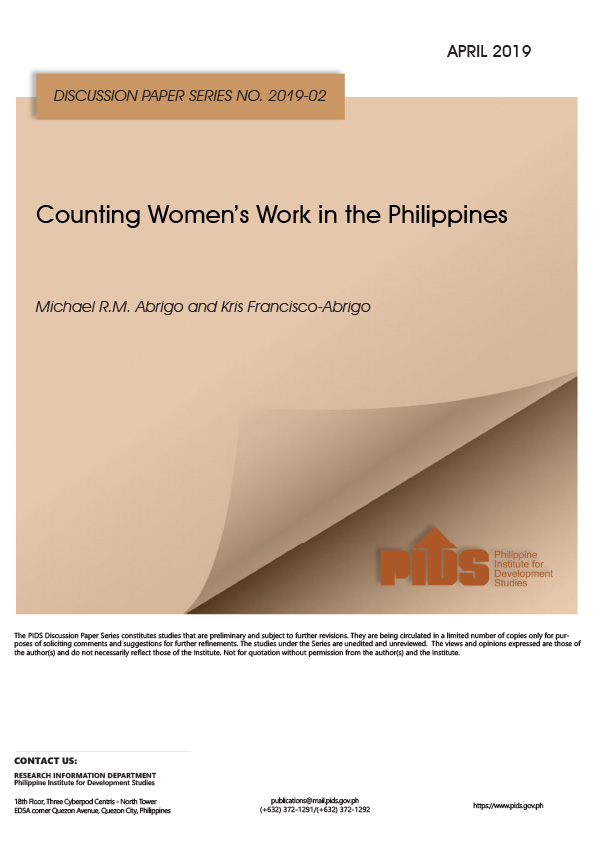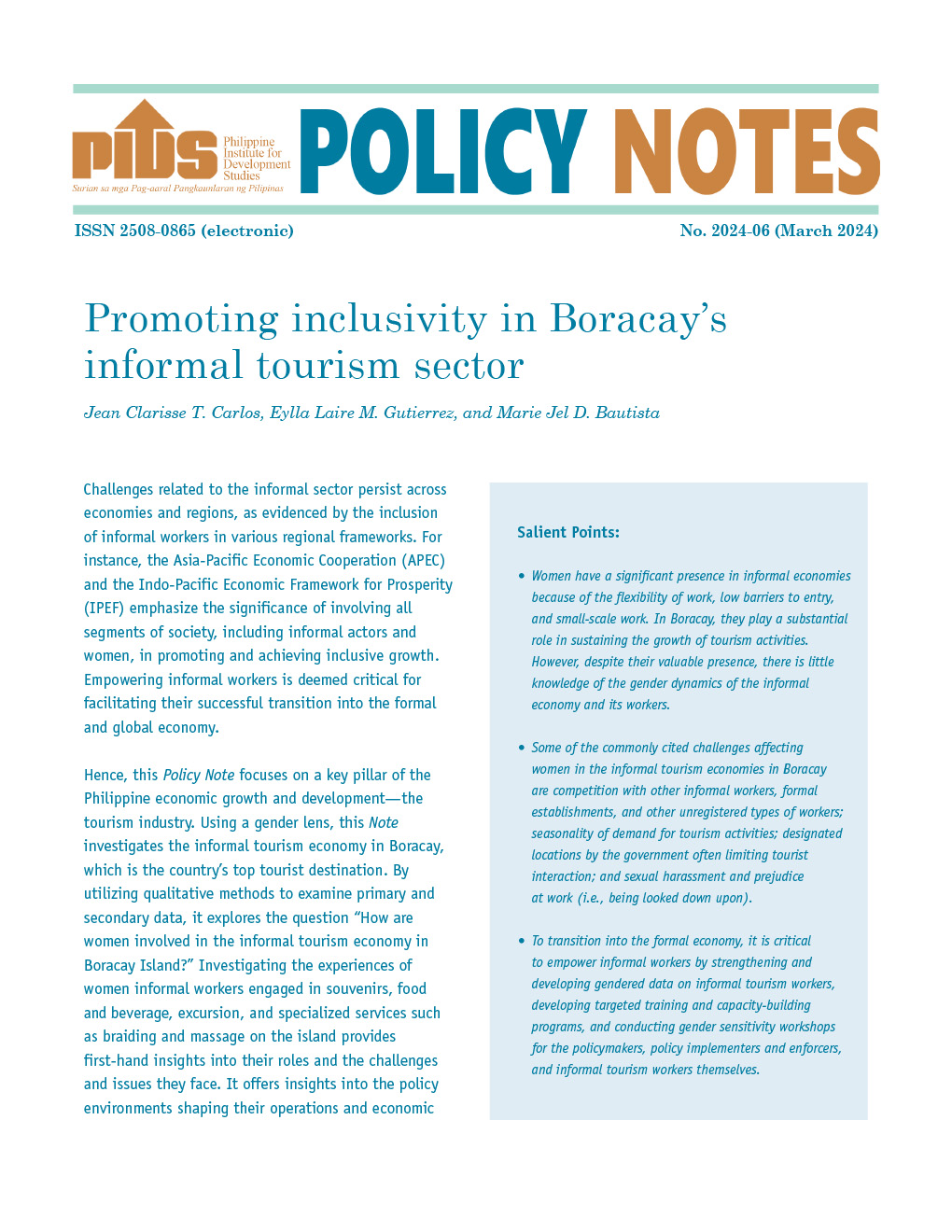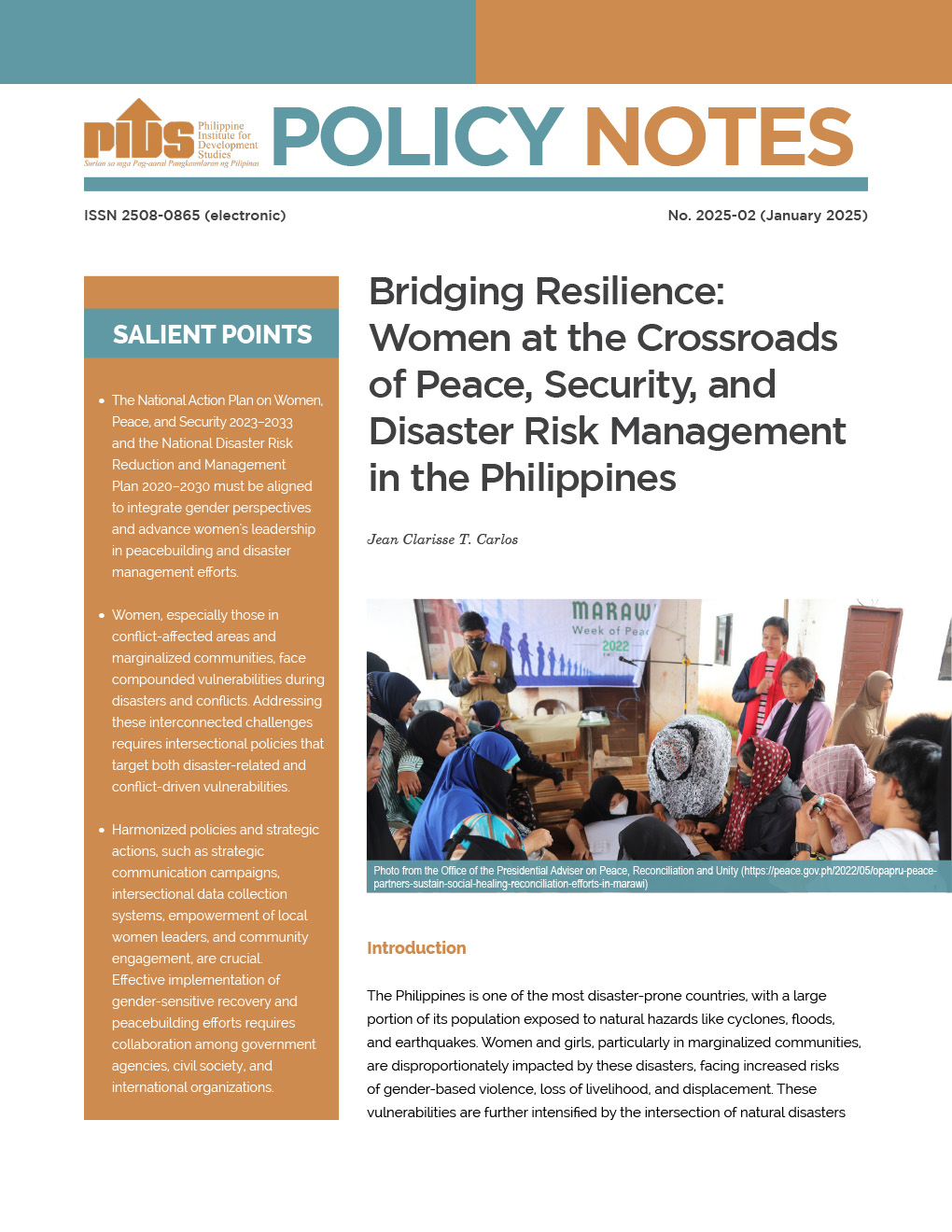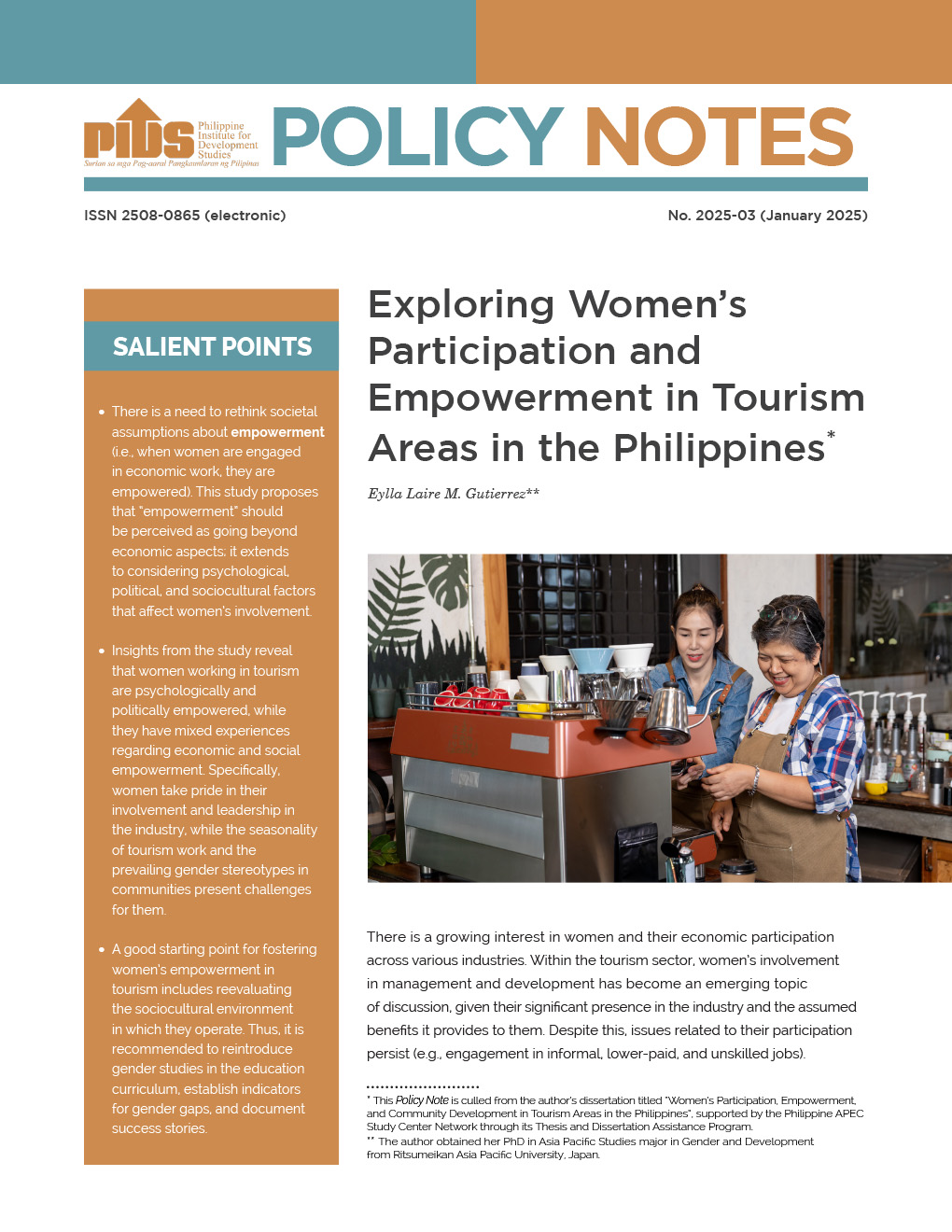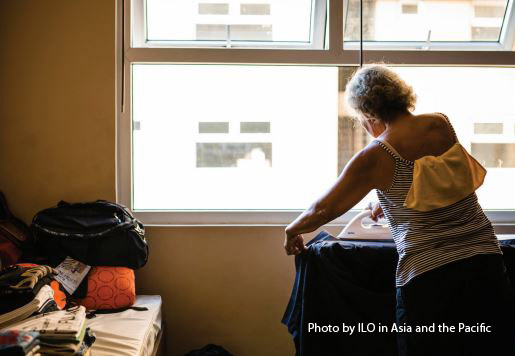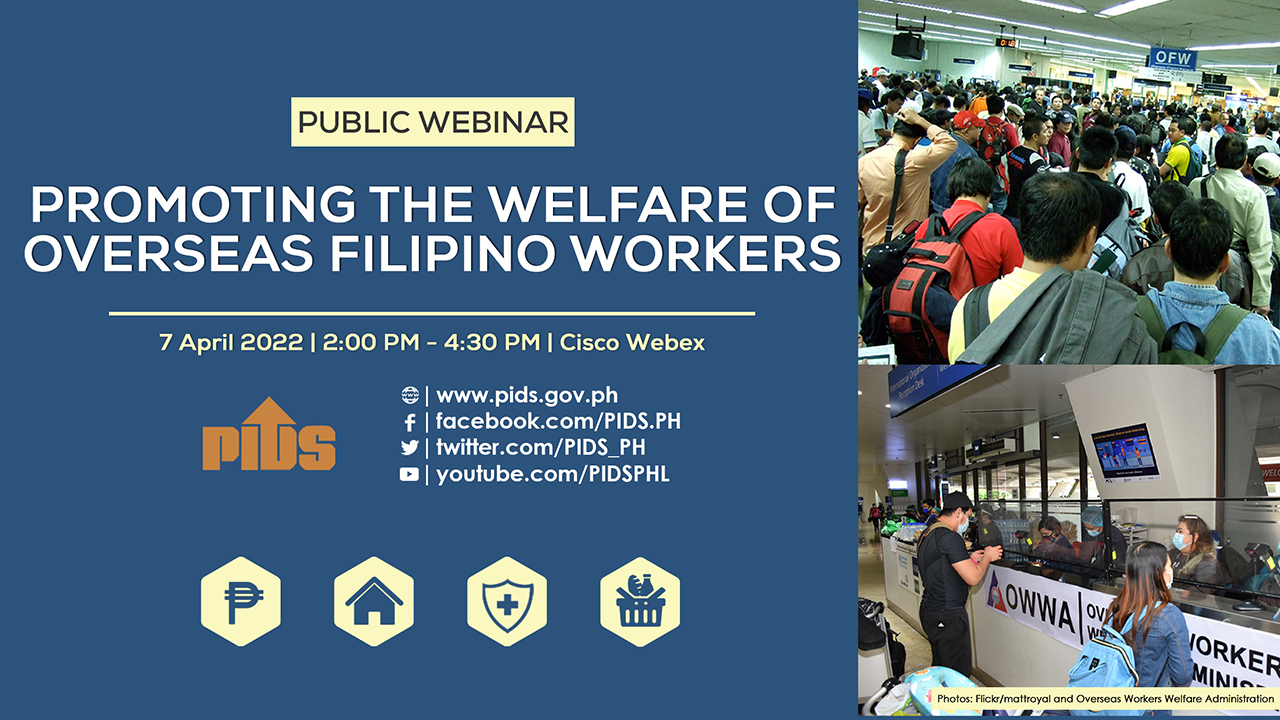Men and women play important and complementary roles in the economy. However, the activities that they perform are often valued differently, if at all. In this study, we provide new estimates of the value of men and women’s work in the Philippines using the National Transfer Account and the National Time Transfer Account frameworks. We find that once the value of unpaid home production is taken into account, the contribution of women is closer to parity relative to those by men, as opposed to using only the value of paid market work. This is despite the fact that home production activities, which are largely performed by women, are paid lower market wages. Additionally, we document a strong association between parental time and child schooling outcomes, which further emphasizes the contribution of unpaid housework in the economy.
Citations
This publication has been cited 9 times
- Abante. 2019. Mga nanay suwelduhan — Salceda. Abante.
- BMPlus. 2021. Commission on Women lauds P&G for advancing household equality with 8-week paternity leave. Business Mirror.
- Cepeda, Cody . 2020. Solo parenting: A tough task made tougher by COVID-19. Inquirer.
- Licas News. 2020. On Father’s Day, dads urged to bridge gap in household work. Licas News.
- Rappler. 2020. Over half of women in PH, 4 other countries doing more household work due to pandemic. Rappler.
- San Juan, Ratziel. 2020. Oxfam: Over half of women shoulder more household work amid COVID-19 pandemic. Philippine Star.
- Westfall, Sammy. 2020. Filipinas’ unpaid care work was already worth $40 billion. The pandemic is forcing them to do more. Vice News.
- Westfall, Sammy. 2020. Women feel more anxious because the pandemic is forcing them to do more unpaid care work. Vice News.
- Ylagan, Amelia. 2019. Mother: Not just an input of GDP. BusinessWorld.

